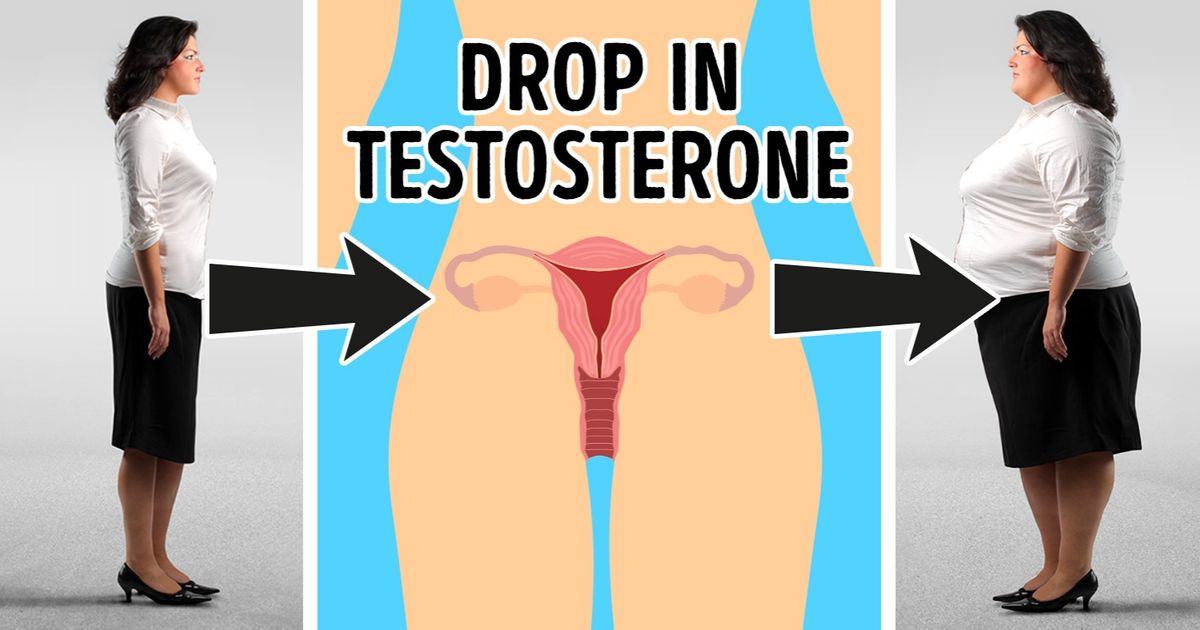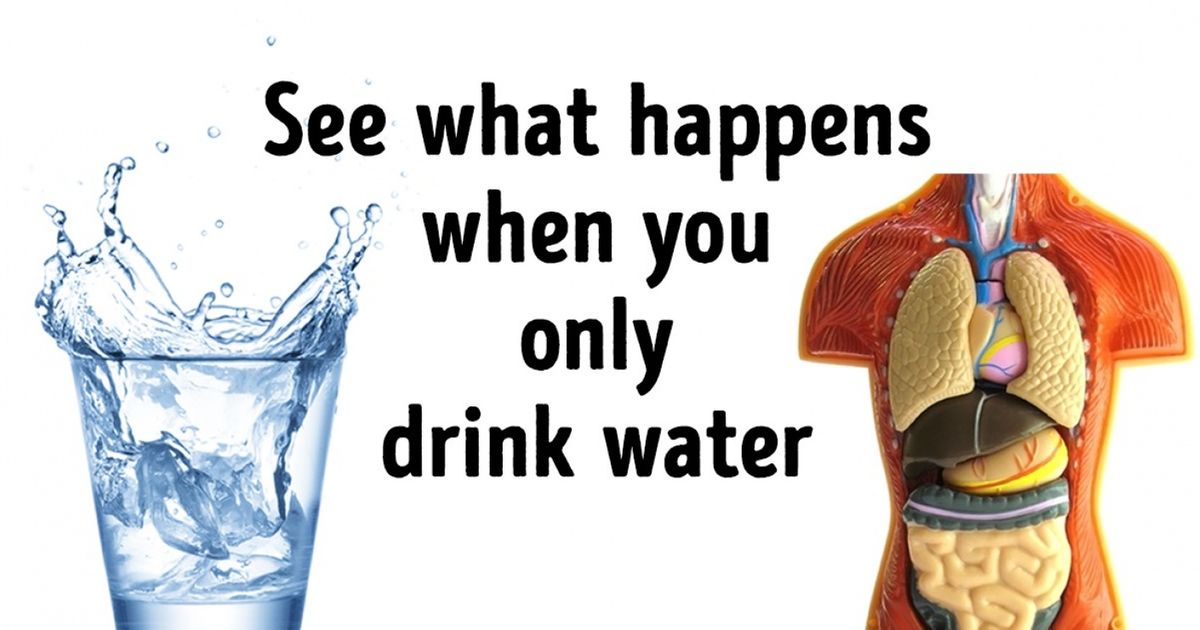Aging is a natural part of life, but the foods you consume can accelerate the process and make you look older than you feel. In today’s fast-paced world, where processed and convenience foods dominate our diets, understanding how specific food components contribute to premature aging is crucial. From sugar that damages vital proteins to trans fats that reduce blood flow to your skin, these dietary culprits not only impact your overall health but also your appearance.
In this article, we delve into eight common foods and ingredients that speed up aging and negatively affect your skin’s health. We will explore how each of these components disrupts collagen production, causes inflammation, or depletes essential nutrients. We aim to provide a comprehensive guide that not only informs but also helps you make better dietary choices for long-term skin health. For additional credible insights, trusted sources like Harvard Health and Mayo Clinic offer extensive research on nutrition and aging.
Foods That Make You Age Faster
Excess Sugar: How High Sugar Intake Destroys Collagen and Elastin

Excessive sugar consumption is one of the leading causes of premature aging. When you consume high amounts of sugar, a process called glycation occurs, where sugar molecules attach to proteins such as collagen and elastin. These proteins are crucial for maintaining skin firmness and elasticity. Glycation damages these proteins, leading to wrinkles, sagging skin, and a loss of youthful radiance.
- The Glycation Process: As sugar attaches to collagen and elastin, it forms harmful compounds known as advanced glycation end products (AGEs), which impair the skin’s natural repair mechanisms.
- Visible Signs of Damage: The breakdown of collagen results in fine lines, wrinkles, and a dull complexion, making the skin appear aged and lifeless.
- Dietary Recommendations: Reducing your intake of sugary snacks, beverages, and processed foods can help slow down this damaging process.
For more detailed information on the impact of sugar on skin aging, visit Harvard Health’s insights on sugar and health.
Trans Fats: Weakening Blood Flow to Your Skin and Causing Inflammation
Trans fats, often found in fried foods, baked goods, and many processed snacks, are notorious for their detrimental health effects. These unhealthy fats can lead to inflammation throughout the body, including in the skin. Inflammation restricts blood flow, reducing the delivery of oxygen and essential nutrients that your skin needs to remain vibrant and youthful.
- Impact on Blood Circulation: Trans fats contribute to clogged arteries and impaired blood flow, which means less oxygen and fewer nutrients reach your skin cells.
- Inflammation and Skin Damage: Chronic inflammation not only accelerates aging but also leads to a breakdown in the skin’s natural barrier, resulting in dryness, irritation, and early signs of aging.
- Healthier Alternatives: Opting for natural fats found in foods like avocados, olive oil, and nuts can improve blood circulation and reduce inflammation.
Learn more about the risks of trans fats and their impact on overall health at Mayo Clinic’s nutrition section.
Alcohol: Toxin Buildup That Deters Skin Health
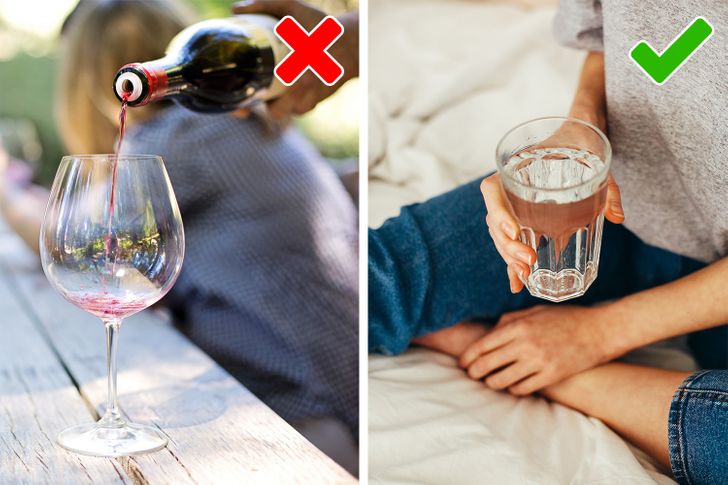
Alcohol consumption, especially in excess, can be highly detrimental to your skin. Alcohol dehydrates the body, diluting the skin’s natural moisture and impairing its ability to repair itself. Additionally, the body prioritizes metabolizing alcohol over other essential nutrients, which leads to a buildup of toxins that further stress the skin.
- Dehydration and Toxin Accumulation: Alcohol depletes vital fluids from the skin, resulting in dryness, loss of elasticity, and an increased appearance of wrinkles.
- Inflammatory Effects: Regular, heavy alcohol consumption promotes inflammation and oxidative stress, which accelerates the aging process.
- Moderation is Key: Limiting alcohol intake and staying well-hydrated can help mitigate these negative effects.
For expert advice on alcohol’s impact on health and aging, check out WebMD’s article on alcohol and skin health.
Insufficient Healthy Fats: The Consequences of Low Omega-3 and Antioxidant Intake

While some fats can harm your skin, not consuming enough healthy fats is equally problematic. Omega-3 fatty acids and antioxidants found in foods like fish, nuts, and olive oil play a crucial role in maintaining skin moisture, reducing inflammation, and supporting collagen production.
- Essential Role of Omega-3s: These fats help preserve the skin’s barrier, keeping it hydrated and supple, while also reducing inflammation that can lead to premature aging.
- Antioxidant Benefits: Antioxidants combat free radicals, unstable molecules that damage skin cells and accelerate the aging process.
- Incorporating Healthy Fats: Adding sources of omega-3s, such as salmon, walnuts, and chia seeds, to your diet can significantly enhance skin health and slow aging.
For more on how healthy fats contribute to anti-aging, visit Harvard Health’s nutrition advice.
Excess Salt: How High Sodium Intake Leads to Water Retention and Puffy Skin
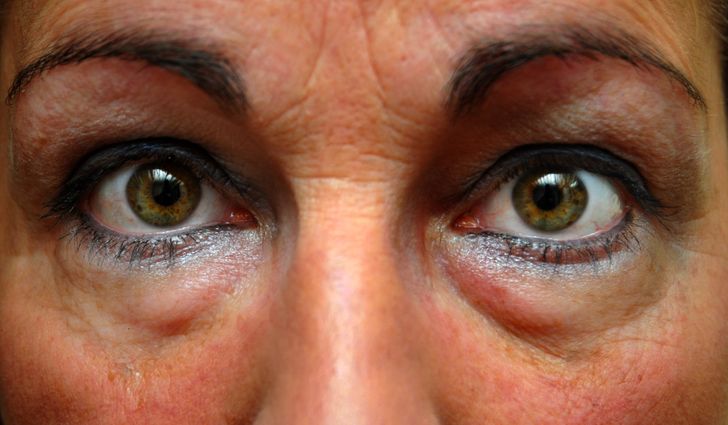
High levels of salt in your diet can cause your body to retain water, leading to a puffy, bloated appearance that may make you look older. Water retention can distort your facial features, cause swelling, and even contribute to inflammation in the skin.
- Water Retention and Aging: Excess salt leads to an accumulation of water in the tissues, which can make the skin appear swollen and less defined.
- Impact on Skin Texture: Over time, the puffy appearance from water retention can exacerbate fine lines and wrinkles.
- Reducing Sodium Intake: Limiting processed and packaged foods high in sodium, and opting for fresh, whole foods, can help maintain a balanced fluid level in your body.
Discover more about the effects of sodium on health at Mayo Clinic’s guidelines on salt consumption.
Processed Meats: The Hidden Dangers of Preservatives and Additives
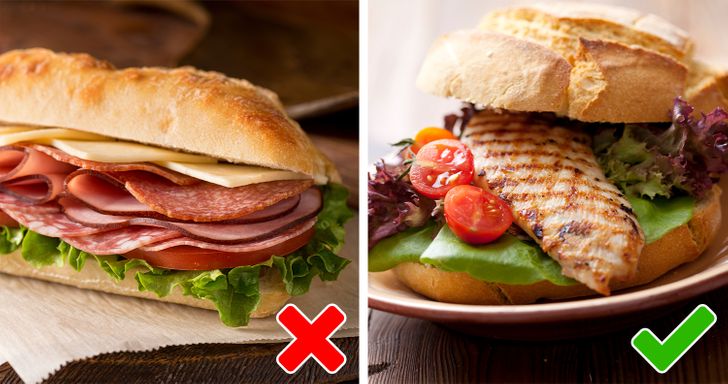
Processed meats such as sausages, hot dogs, and deli meats often contain high levels of preservatives, nitrates, and additives. These compounds not only increase the risk of chronic diseases but also contribute to dehydration and skin damage.
- Dehydration and Nutrient Depletion: The additives in processed meats can lead to dehydration, robbing your skin of the moisture it needs to stay plump and youthful.
- Inflammatory Effects: Preservatives in processed meats can trigger inflammatory responses, which accelerate the breakdown of collagen and elastin.
- Healthier Choices: Opt for fresh, lean meats or plant-based protein alternatives to reduce your intake of harmful additives.
For additional insights on processed meats and their health risks, refer to Healthline’s comprehensive guide.
Charred Meat: How Burnt Foods Create Harmful Compounds That Damage Skin
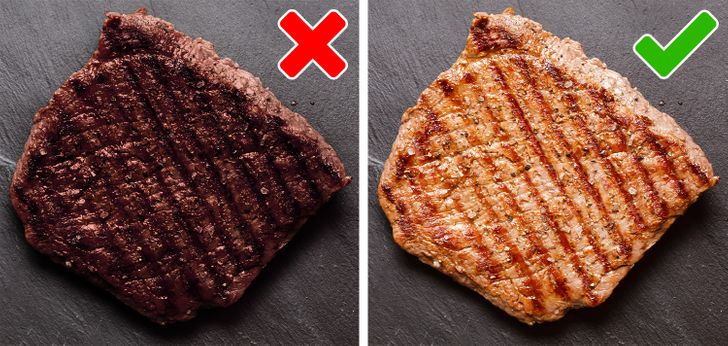
When meat is cooked at high temperatures, especially when charred, it produces harmful compounds known as advanced glycation end products (AGEs). These AGEs can damage the collagen and elastin in your skin, leading to a loss of firmness and elasticity.
- Formation of AGEs: High-temperature cooking causes proteins and sugars in the meat to form AGEs, which are detrimental to skin health.
- Impact on Collagen and Elastin: The accumulation of AGEs weakens the structural integrity of the skin, resulting in premature wrinkles and sagging.
- Cooking Tips: To minimize AGE formation, opt for cooking methods such as steaming, boiling, or baking, and avoid overcooking or charring your food.
Learn more about the impact of AGEs on health and aging at Harvard Health’s resources on advanced glycation end products.
Fried Potatoes: How Deep-Frying Depletes Essential Minerals and Promotes Inflammation
Fried potatoes, including popular choices like french fries and potato chips, are not only high in unhealthy fats but also contribute to mineral depletion and inflammation. The deep-frying process reduces the nutritional value of potatoes and introduces harmful compounds that accelerate aging.
- Mineral Depletion: The high heat used in frying can strip potatoes of important minerals such as potassium and magnesium, which are vital for maintaining healthy skin.
- Inflammatory Compounds: Frying in unhealthy oils produces trans fats and other inflammatory compounds, which exacerbate skin aging and promote a dull complexion.
- Healthier Preparation Methods: Baking or boiling potatoes instead of frying them can preserve their nutritional content and help maintain a youthful appearance.
For more information on the nutritional impacts of fried foods, visit Mayo Clinic’s nutrition section.
Conclusion: Taking Control of Your Diet for Youthful, Radiant Skin
While aging is inevitable, the way you age is largely influenced by your dietary choices. The eight food categories discussed—excess sugar, trans fats, alcohol, low consumption of healthy fats, high salt intake, processed meats, charred meat, and fried potatoes—play a significant role in accelerating the aging process and making you look older than you feel.
By being mindful of your food choices and opting for nutrient-dense, whole foods, you can protect your skin from premature aging. Reducing the intake of foods that damage collagen and elastin, promoting circulation with healthy fats, and avoiding inflammatory additives are all strategies that support a youthful, vibrant appearance.
Incorporating these dietary changes not only improves your skin’s health but also enhances your overall well-being. Adopting an anti-aging diet rich in antioxidants, omega-3 fatty acids, and essential vitamins can slow down the aging process, reduce wrinkles, and maintain your natural glow.
For additional guidance on anti-aging nutrition and skincare, consult trusted sources like Harvard Health, Mayo Clinic, and Healthline. These reputable sites offer evidence-based advice that can help you make informed decisions about your diet and lifestyle.
Remember, your diet is one of the most powerful tools you have in the fight against premature aging. By eliminating harmful foods and focusing on a balanced, nutrient-rich eating plan, you can take proactive steps toward a healthier, more youthful future. Make small, sustainable changes today, and enjoy the benefits of radiant skin and overall vitality for years to come.
